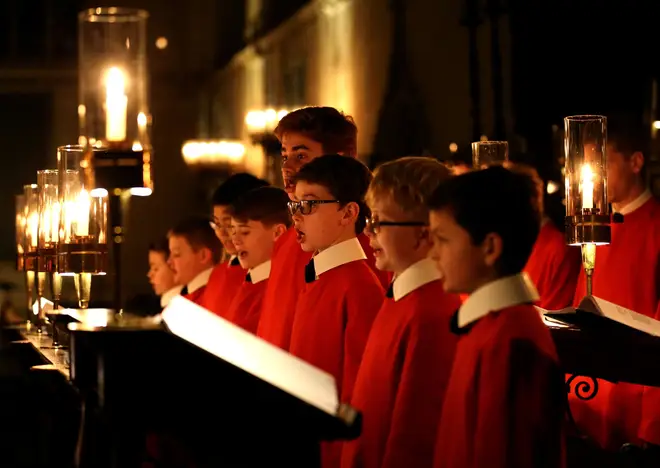On Air Now
The Classic FM Hall of Fame with Anne-Marie Minhall 12pm - 3pm
23 November 2021, 10:02

The Coventry Carol is a 16th-century English Christmas carol with a fascinating history – and rather disturbing lyrics, it turns out…
The ‘Coventry Carol’ is an English Christmas carol with quite the history.
A 16th-century carol originating from Coventry, it was traditionally performed during Coventry Mystery Plays, which were Medieval plays telling New Testament Stories, including that of the Nativity.
Of the few surviving plays, The Pageant of the Shearmen and Tailors depicts the Nativity from Chapter 2 in the Gospel of Matthew – from the ‘Annunciation’ to the ‘Massacre of the Innocents’ (see below).
Read more: What are the lyrics to ‘In The Bleak Midwinter’ – and which version is better?

Coventry Carol (Lully, lulla) | Carols from King's 2019
Lully, lullay, thou little tiny child,
Bye bye, lully, lullay.
Thou little tiny child,
Bye bye, lully, lullay.
O sisters too, how may we do
For to preserve this day
This poor youngling for whom we sing,
“Bye bye, lully, lullay?”
Herod the king, in his raging,
Chargèd he hath this day
His men of might in his own sight
All young children to slay.
That woe is me, poor child, for thee
And ever mourn and may
For thy parting neither say nor sing,
“Bye bye, lully, lullay.”
The lyrics rather disturbingly detail King Herod’s harrowing orders, made at the news of the birth of Jesus Christ, to slay all children known as the ‘Massacre of the Innocents’.
So not very cheery at all, which is why it’s set in that hauntingly sombre, but undeniably beautiful, minor melody.
Read more: Christmas carols in a minor key
“Lullay” or “lully” is an archaic, onomatopoeic (imitating real life sounds) term – heard as its derivative lull [in proceedings] and lullaby still today.
“Bye, bye” the carol intones; “Herod the king, in his raging / Chargèd he hath this day / His men of might in his own sight / All young children to slay.”
The lyrics are heart-breaking; farewelling the children that Herod has ordered to be killed. Surely, the most poignant of the minor key traditional Christmas carols.
Read more: Someone has put Silent Night into a minor key and it’s super creepy

Listen to this beautiful Ukrainian carol, The Little Swallow
‘Coventry Carol’ is now associated closely with Christmas, but that wasn’t always the case, according to a Medievalist.
Speaking to Vox, Wolverhampton University’s Daisy Black says: “Medieval drama was in the business of staging what was considered the entire history of the world represented in scripture, from Creation to Doomsday, unlike our modern nativity plays, which tend to safely end with the visit of the Magi, they carried on to the massacre, showing the very human cost of Christ’s birth.”
The plays encapsulating this drama were put on for Corpus Christi – which is a midsummer celebration – according to Vox.
And the tune, to our ears, is incredibly sad. But it was not necessarily so to Medieval and Renaissance times.
Read more: What are modes and how do I use them?
While we have generally come to associate minor keys with sadness – and major keys with happiness – the associations are widely thought to have been the other way round centuries ago.
Not to mention the fact major and minor keys weren't used until the Baroque, and so ‘The Coventry Carol’ would most likely have been heard originally in a Medieval mode.
Click here for Classic FM Christmas – our non-stop playlist of Christmas music.